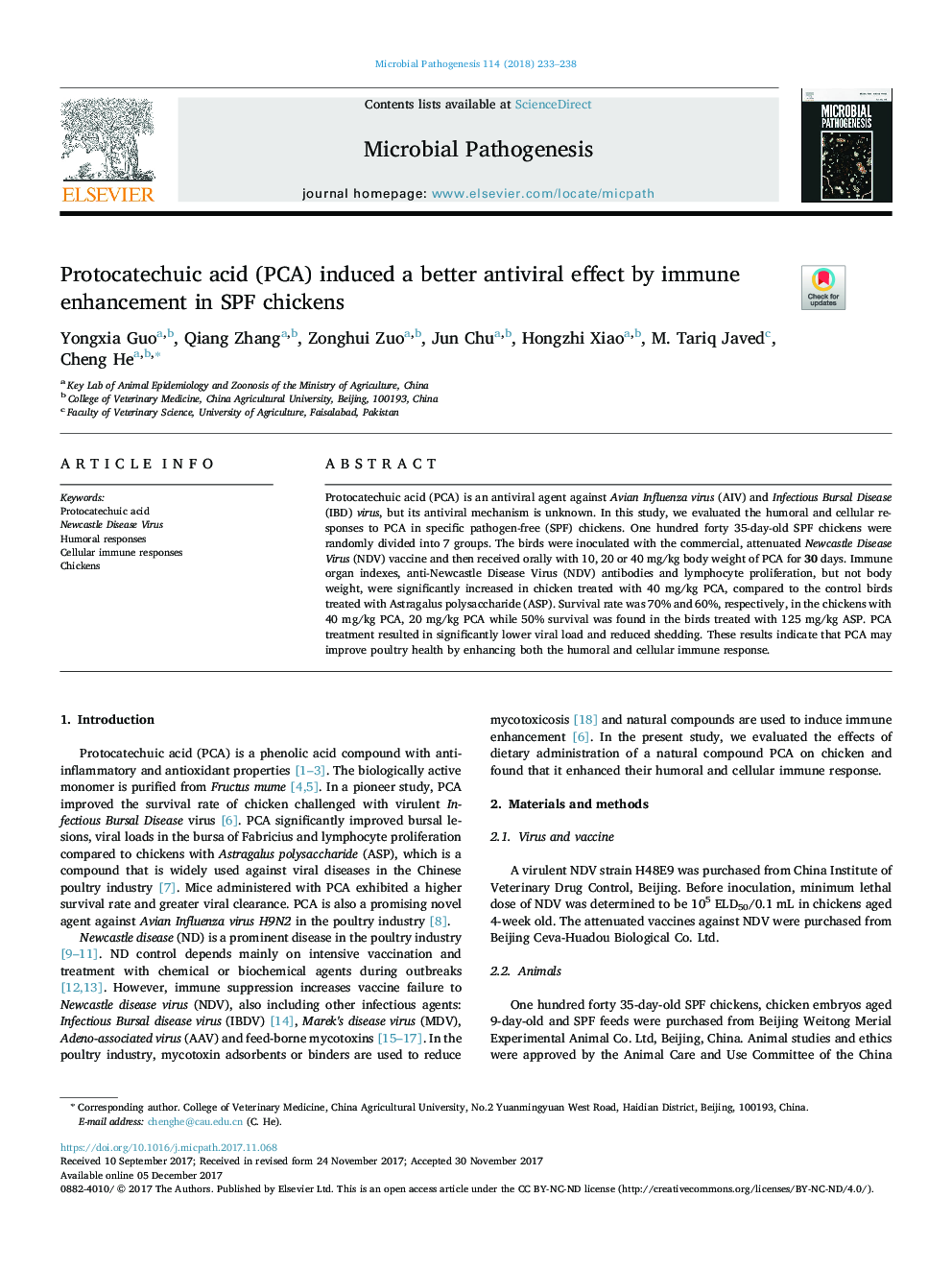| Article ID | Journal | Published Year | Pages | File Type |
|---|---|---|---|---|
| 8749888 | Microbial Pathogenesis | 2018 | 6 Pages |
Abstract
Protocatechuic acid (PCA) is an antiviral agent against Avian Influenza virus (AIV) and Infectious Bursal Disease (IBD) virus, but its antiviral mechanism is unknown. In this study, we evaluated the humoral and cellular responses to PCA in specific pathogen-free (SPF) chickens. One hundred forty 35-day-old SPF chickens were randomly divided into 7 groups. The birds were inoculated with the commercial, attenuated Newcastle Disease Virus (NDV) vaccine and then received orally with 10, 20 or 40Â mg/kg body weight of PCA for 30 days. Immune organ indexes, anti-Newcastle Disease Virus (NDV) antibodies and lymphocyte proliferation, but not body weight, were significantly increased in chicken treated with 40Â mg/kg PCA, compared to the control birds treated with Astragalus polysaccharide (ASP). Survival rate was 70% and 60%, respectively, in the chickens with 40Â mg/kg PCA, 20Â mg/kg PCA while 50% survival was found in the birds treated with 125Â mg/kg ASP. PCA treatment resulted in significantly lower viral load and reduced shedding. These results indicate that PCA may improve poultry health by enhancing both the humoral and cellular immune response.
Keywords
Related Topics
Life Sciences
Immunology and Microbiology
Microbiology
Authors
Yongxia Guo, Qiang Zhang, Zonghui Zuo, Jun Chu, Hongzhi Xiao, M. Tariq Javed, Cheng He,
